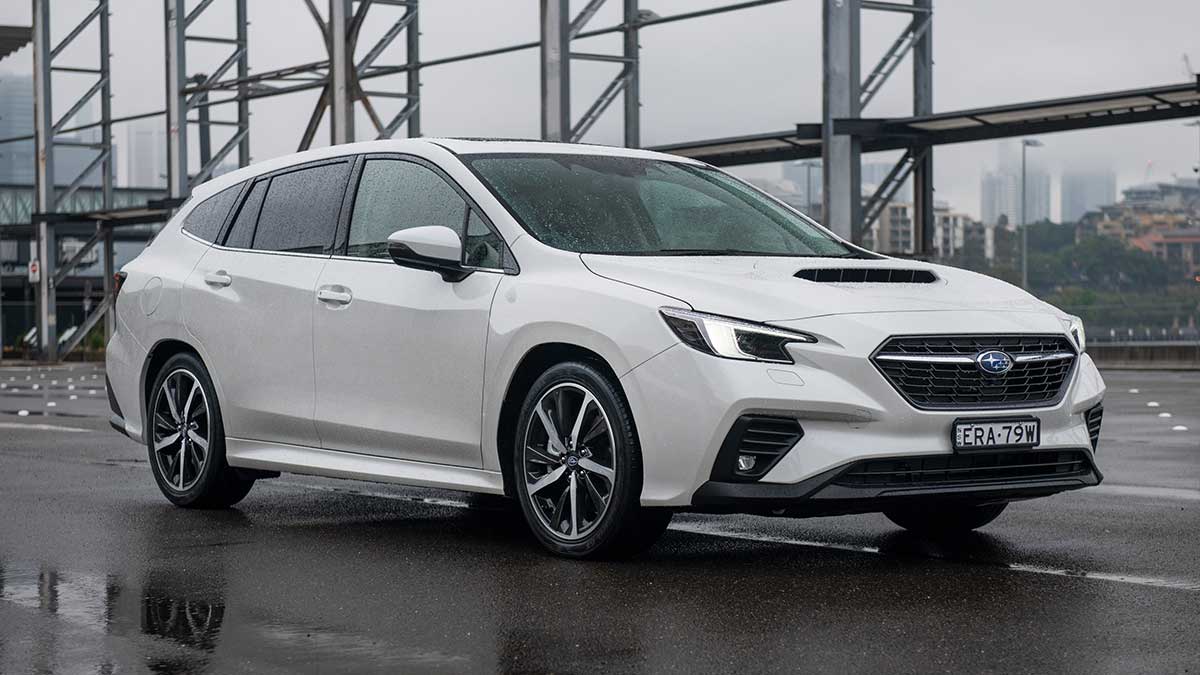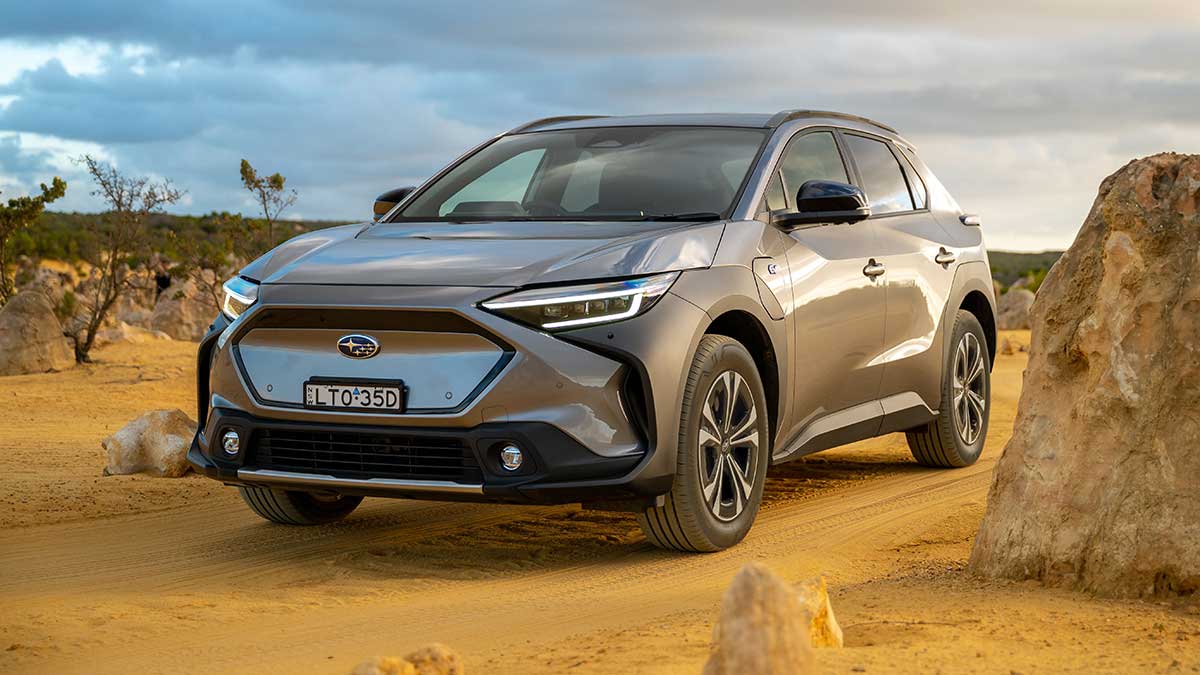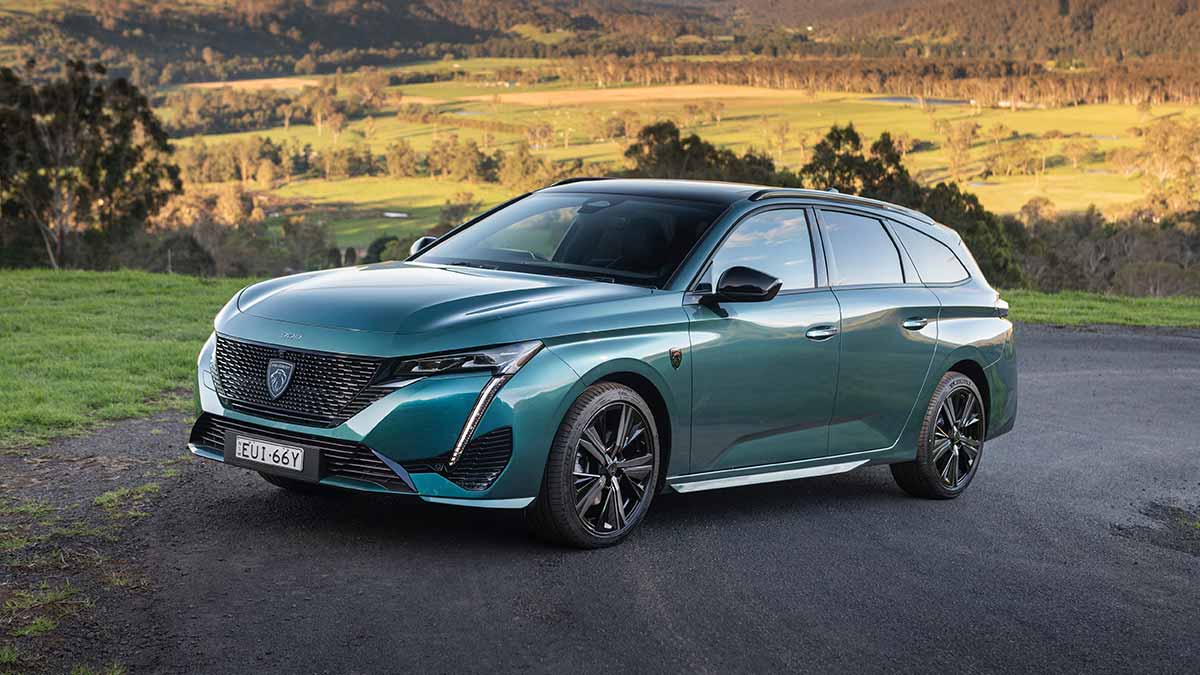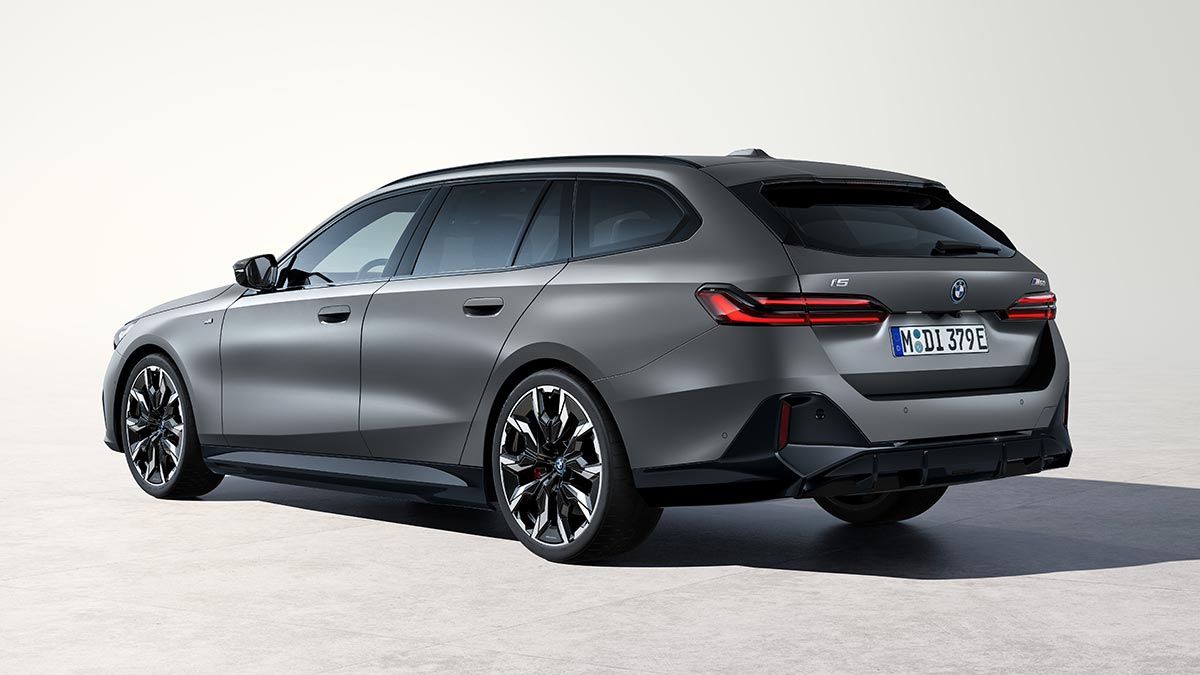Confused by petrol types? Learn the difference between 91, 95, 98 and E10 fuel, what octane ratings mean, and how to choose the right petrol for your car.
Station wagon vs SUV: which should I buy?

SUVs have overtaken station wagons, sedans and hatches as the go-to family car over the past decade, but are they really the better option?
SUVs are today the clear body style of choice for Australians, accounting for almost 60 per cent of all new vehicle sales and regularly featuring among the top-selling models each month.
Passenger cars, on the other hand, currently represent less than one in five of all new vehicles sold in Australia and many brands have stopped offering traditional station wagons.
There are exceptions to the rule, including some premium EV wagons such as the all-new BMW i5 Touring, but SUVs are the dominant force across the marketplace – whether they’re all-electric, hybrid or with a conventional engine.
Does that mean SUVs are the better choice? Is it still worth considering a station wagon over an SUV?
We’ve looked into the pros and cons of each body style to help you make an informed car-buying decision.
More: The rise of the SUV
On this page
Station wagon vs SUV: What is the difference?
A station wagon is typically based on a sedan of the same size but has a bigger cargo carrying capacity. It forgoes a traditional boot in favour of an extended roofline over the passenger compartment to the rear end of the car, where a tailgate provides access to the roomier area.
Modern examples include the Mazda6, Skoda Octavia, Peugeot 308 and Subaru WRX. Luxury brands such as Audi and BMW also continue to offer wagon (or estate) versions of key models. Station wagons are still popular across Europe, but not so much in Australia in recent years, especially since the end of local manufacturing.
The term ‘SUV’ (or Sport Utility Vehicle) was coined in the United States in the 1970s and has today been adopted globally, referring to a wagon-style vehicle that typically sits higher off the ground than a traditional passenger car to offer a higher seating position for occupants.
The Toyota RAV4 is Australia’s biggest-selling SUV, with other popular models including the Mitsubishi Outlander, the battery-electric Tesla Model Y and the Ford Everest off-road SUV.
SUVs come in a range of sizes, from small (compact) to medium and large. Some are only designed for paved roads while others have varying degrees of off-road capability, ranging from minor excursions on dirt roads to traversing rugged mountainous terrain.
SUVs are highly valued as family transport and for long-distance touring. Many larger models are well-suited to carrying heavier loads and towing caravans.
Medium-sized SUVs are today the most popular of all vehicle sales categories in Australia, and many electric cars such as the Toyota bZ4X and BYD Atto 3 are now found in this segment. Small SUVs are also growing fast, with modern examples including the Hyundai Kona and Subaru Crosstrek.
More traditional 4x4 wagons, including the Toyota LandCruiser Prado and Toyota LandCruiser 300 Series, also remain highly valued by many Australian buyers as a versatile vehicle.

The Mazda6 wagon has been a popular model in Australia for more than 20 years.
SUVs and station wagons compared
Ride height
Part of the appeal of an SUV has always been that they allow the driver to sit up higher in traffic, allowing for better visibility of the road ahead. That said, the proliferation of SUVs and dwindling number of passenger cars means you’re usually sitting behind other SUVs (or utes, which are also incredibly popular), which cancels out any height advantage.
Some car buyers believe that fitting a child car seat, and lifting a child into and out of the seat, is easier in an SUV, thanks to the higher hip height. The hip height also means you can slide into the driver’s seat rather than bending down to get in. That also means SUVs could be a better option for seniors, or for people with back injuries or mobility issues. It makes it easier to load objects into the boot, too.
Fuel economy
Generally, station wagons are more fuel-efficient than their SUV counterparts because they are more aerodynamic than higher-riding SUVs, and they weigh less.
For example, the Mazda6 wagon has a claimed combined-cycle fuel economy rating of 7.0L/100km when using a 140kW/252Nm 2.5-litre engine, whereas the equivalent (2WD) Mazda CX-5 SUV returns 7.2L/100km. Add 4WD hardware and the CX-5's economy increases to 7.4L/100km.
Boot and interior space
Looking at wagons and SUVs that share the same basic underpinnings or have comparable overall dimensions, station wagons often have a slight edge in terms of cargo space – but not always.
The Peugeot 308 wagon (608L) has an advantage in this department over the new Peugeot 3008 SUV (520L), for example, while the Mazda6 wagon (474L) offers a little more luggage space than the Mazda CX-5 (438L). The Skoda Octavia wagon (600L) similarly edges out the Skoda Karoq (588L).
Elsewhere, the current Audi Q5 SUV (520L) offers more cargo room than the Audi A4 Avant wagon (495L), and the BMW X3 (570L) trumps the BMW 3 Series Touring (500L).
In terms of interior occupant space, the differences are generally negligible. SUVs might have more headroom, but some wagons may have more legroom.
Safety
Very little separates the two body styles when it comes to safety. SUV and wagon models based on the same vehicle architecture usually have the same, or similar, safety equipment.
Safety ratings from the Australasian New Car Assessment Program (ANCAP) are also similar.
With their higher stance, SUVs have an advantage in generally providing a better view of the road ahead compared to a station wagon.
Performance
Aerodynamics and weight differences tend to give wagons an edge for acceleration.
The laws of physics also mean SUVs aren’t usually as dynamic as wagons. A taller vehicle generally has more body roll when cornering as the weight shifts to the outside corner when the vehicle starts to turn. Because station wagons are lower to the ground and based on a passenger car, they should offer driving characteristics typical of a sedan or hatchback.
Off-road ability
Many SUVs are designed to go off-road. It’s worth keeping in mind, however, that many SUV models are in fact two-wheel drive and are not suitable for all-terrain driving, even if their styling and marketing give the impression of off-road capability.
These are often referred to as soft-roaders. For example, a Toyota LandCruiser is a true off-roader, while the Toyota RAV4 is generally considered a soft-roader.
Availability
There is only a small number of brand-new station wagons available to purchase in Australia today, as car manufacturers switch their development and manufacturing priorities to SUVs. Buyer preference for SUVs has also prompted some brands to discontinue wagons in our market, despite being available overseas.
That means buyers will often need to turn to the second-hand market to purchase a used station wagon instead.
SUVs, on the other hand, can be found in abundance – both new and used. There is a wide range of models and sizes readily available for purchase from the majority of brands in Australia.

The new Ford Everest Tremor has genuine off-roading capabilities.
Should I buy an SUV or a station wagon?
Station wagons can be just as spacious and practical for singles, couples and families as SUVs, and superior when it comes to fuel economy and performance.
However, many people will continue to favour SUVs for their modern aesthetic and the wider range of models available across different price points.
The choice between an SUV or station wagon will usually come down to personal preference and budget. In fact, some people may prefer a wagon these days just because they’re less common.
If you're intent on buying brand-new, you will be limited in your choice with a station wagon, but the advantages may still be compelling enough to steer you in that direction.
The information provided is general advice only. Before making any decisions please consider your own circumstances and the Product Disclosure Statement and Target Market Determinations. For copies, visit racv.com.au. As distributor, RACV Insurance Services Pty Ltd AFS Licence No. 230039 receives commission for each policy sold or renewed. Product(s) issued by Insurance Manufacturers of Australia Pty Ltd ABN 93 004 208 084 AFS Licence No. 227678.






